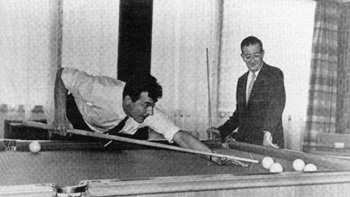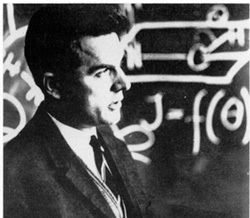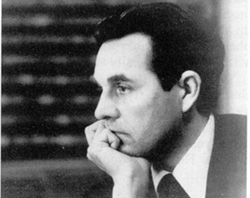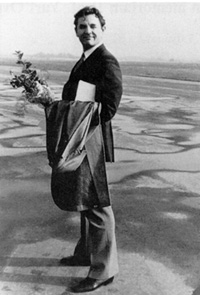Who was Yuri Ovchinnikov? What were his ideas and what did he achieve during his dynamic although brief carrier? Why do we remember him at this Wilsede meeting? I do not think that these questions really ought to be answered, since Yuri Ovchinnikov belonged to the elite of international scientific community, being extremely well known not only for the results of his own research but also as an outstanding leader of chemical and biological sciences in the Soviet Union and a champion of international scientific collaboration.
A separate chapter of this book describes the path along which the main achievements of Ovchinnikov as a biochemist were reached. Here, I would like to offer the reader a glipse of Ovchinnikov as a human being. He was born in 1934 in Moscow; in 1952 he entered the Chemical Department of Moscow University and in 1957, after graduation, he became a professional researcher. Many facets of his unique personality showed up already in these early years. He had a phenomenal memory and was a leading actor at the University studio.
Yuri loved sports. He was a University champion in free-style wrestling, and was also a keen swimmer and cross-country skier. These skills he maintained for many years to come. It seems that the famous Robert Woodward has little chance of surviving in the billiard game with Yuri shown in Fig. 1.
 Fig. I. Moments of relaxation (1970): Yuri Ovchinnikov (left) and Nobel prize winner Prof. R. Woodward (USA)  Fig. 2. Yuri Ovchinnikov lecturing ( 1972 )  Fig. 3 Deep in thought ( 1975 )  Fig. 4. At Yaroslavl airport ( 1982 ) Being a loving husband and father and generally a very warm personality,
Ovchinnikov had a talent for collecting teams of young enthusiastic
people and helping them in their research. A clear vision, high
motivation, the burden of responsibility -these are some of the
characteristic Yuri's qualities and feelings which are well reflected
in Figs. 2, 3. A favorite among many of those who knew Yuri well
is Fig. 4, where we see his firm stand, the boyish mischief, the
invincible optimism and the belief that "we shall overcome", whatever
the obstacles. |